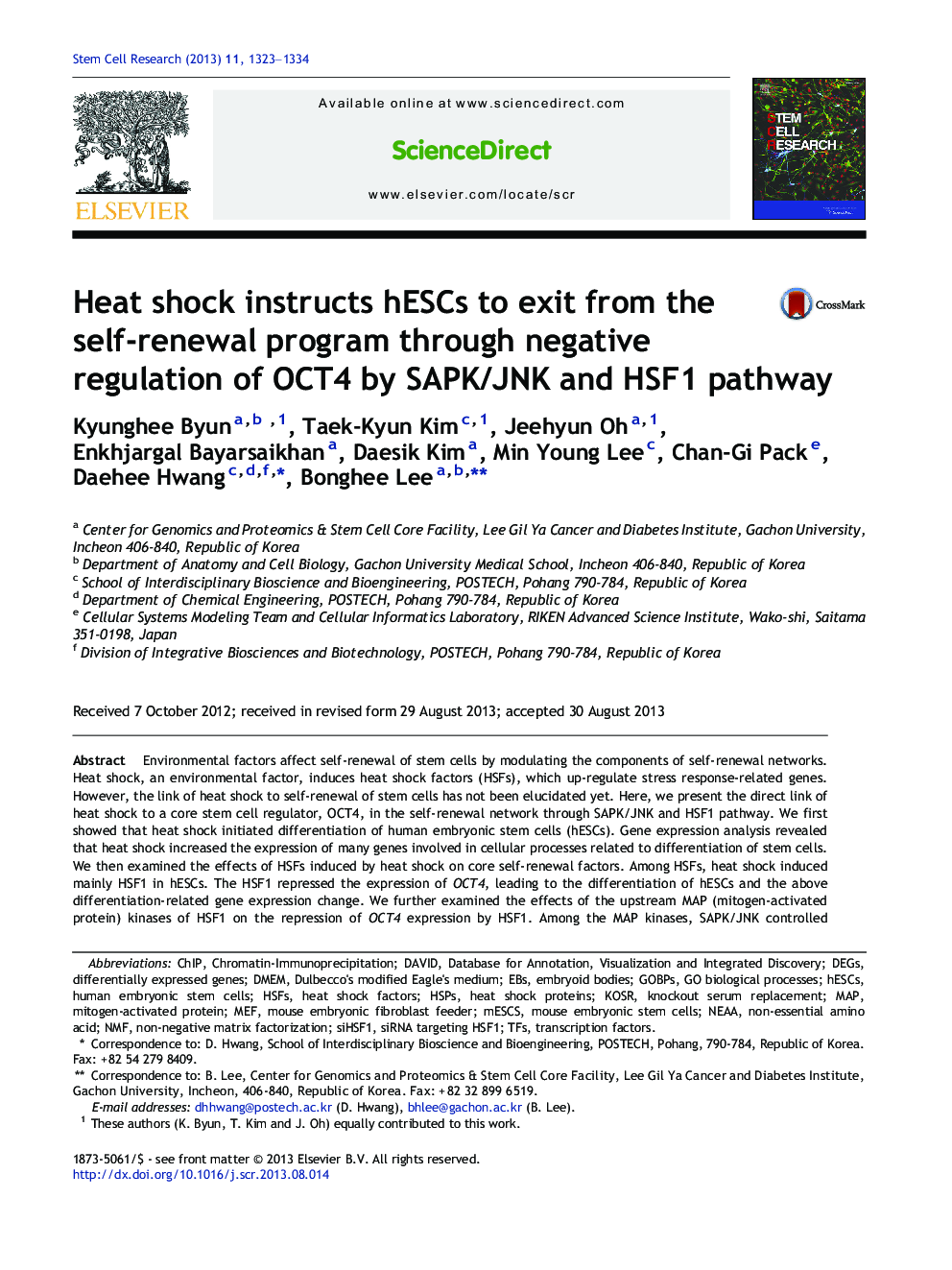| Article ID | Journal | Published Year | Pages | File Type |
|---|---|---|---|---|
| 10891292 | Stem Cell Research | 2013 | 12 Pages |
Abstract
Environmental factors affect self-renewal of stem cells by modulating the components of self-renewal networks. Heat shock, an environmental factor, induces heat shock factors (HSFs), which up-regulate stress response-related genes. However, the link of heat shock to self-renewal of stem cells has not been elucidated yet. Here, we present the direct link of heat shock to a core stem cell regulator, OCT4, in the self-renewal network through SAPK/JNK and HSF1 pathway. We first showed that heat shock initiated differentiation of human embryonic stem cells (hESCs). Gene expression analysis revealed that heat shock increased the expression of many genes involved in cellular processes related to differentiation of stem cells. We then examined the effects of HSFs induced by heat shock on core self-renewal factors. Among HSFs, heat shock induced mainly HSF1 in hESCs. The HSF1 repressed the expression of OCT4, leading to the differentiation of hESCs and the above differentiation-related gene expression change. We further examined the effects of the upstream MAP (mitogen-activated protein) kinases of HSF1 on the repression of OCT4 expression by HSF1. Among the MAP kinases, SAPK/JNK controlled predominantly the repression of the OCT4 expression by HSF1. The direct link of heat shock to the core self-renewal regulator through SAPK/JNK and HSF1 provides a fundamental basis for understanding the effect of heat and other stresses involving activation of HSF1 on the self-renewal program and further controlling differentiation of hESCs in a broad spectrum of stem cell applications using these stresses.
Keywords
MEFHsfsNEAAmESCsEBsHSPsTFsDEGshESCsDMEMNMFDulbecco's modified Eagle's mediumnon-essential amino acidNon-negative matrix factorizationembryoid bodiesknockout serum replacementDAVIDhuman embryonic stem cellsMouse embryonic stem cellsHeat shock factorsmapdatabase for annotation, visualization and integrated discoverymitogen-activated proteinHeat shock proteinsCHiPDifferentially expressed geneschromatin-immunoprecipitation
Related Topics
Life Sciences
Biochemistry, Genetics and Molecular Biology
Biotechnology
Authors
Kyunghee Byun, Taek-Kyun Kim, Jeehyun Oh, Enkhjargal Bayarsaikhan, Daesik Kim, Min Young Lee, Chan-Gi Pack, Daehee Hwang, Bonghee Lee,
